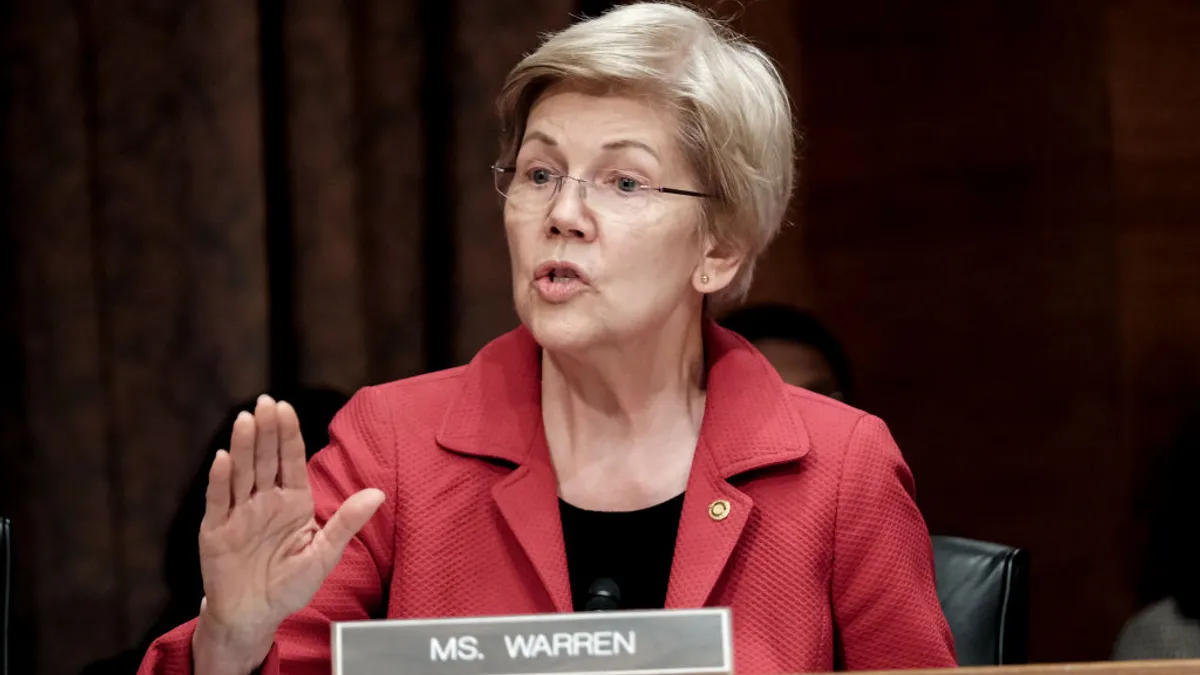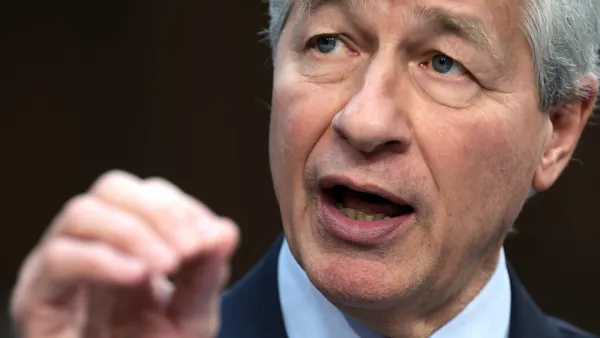Concerned about a potential recession, Sen. Elizabeth Warren, D-MA, is urging the Federal Reserve to activate a tool that requires big banks to maintain an extra capital cushion.
“Better capitalized banks lend more to businesses and households and are better positioned to buoy the economy in a recession – a reality growing increasingly likely in light of President Trump’s economic mismanagement,” she wrote in a letter to Fed Gov. Lisa Cook, the central bank’s financial stability chair. “The Fed is inexplicably moving in the opposite direction, weakening big bank safeguards at the worst possible moment. It must reverse course immediately.”
The Fed established the CCyB framework in 2013 at the direction of the Dodd-Frank Act, and in 2016 committed to reviewing the CCyB level annually.
“While the economy has grown by over 30% since the framework was first introduced, and pockets of risk have emerged at various times, the Fed has kept the CCyB at 0%,” Warren wrote. “The Fed has also violated its own policy framework, as it has failed to even conduct a vote on the CCyB over the last five years.”
“It’s time to finally activate it,” Warren wrote.
In its April financial stability report, the Fed identified several of what Warren called “concerning indicators” – including high asset valuations, high hedge fund leverage, and low liquidity in Treasury and equity markets.
In the Fed’s survey of salient risks to the financial system, respondents noted higher concerns about risks to global trade, policy uncertainty, persistent inflation, risk asset/valuation correction and treasury market functioning than respondents expressed in the fall.
Warren specifically noted tariff-related financial issues, citing Fed projections from June indicating that “Trump’s tariff war is driving expectations of higher inflation, higher unemployment, and less growth.” She also called out the rapid growth of private credit, which “has seen a 145% increase in the volume of bank loans to private debt funds,” as a risk that should push the Fed to activate the CCyB.
“The Fed expects the CCyB will be activated ‘when systemic vulnerabilities are meaningfully above normal.’ Current conditions are exactly what the CCyB is designed to protect against,” Warren wrote.
“Instead of voting to reduce big bank capital and chip away at other safeguards at the worst possible moment, you should use your position as the Governor responsible for financial stability to implore the Board to reverse course. Current economic conditions demand stronger safeguards on Wall Street to ensure taxpayers, small businesses, and families are not left holding the bag once again when big banks’ risk-taking blows up,” she wrote.
Warren ended the letter by asking Cook why the Fed has “violated its own policy statement” by failing to vote on the CCyB over the past five years, and by asking when it will vote on the CCyB for 2025. The senator has requested a response from Cook – along with Fed Chair Jerome Powell and Vice Chair for Supervision Michelle Bowman, who were copied on the letter – by Sept, 5.
A spokesperson confirmed that Fed received the letter and will respond.













